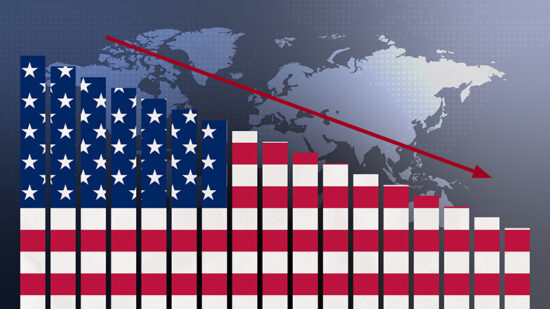In the conference call following the announcement of the deal, Henderson Global Investors CEO, Andrew Formica said that while, at $110m (£85.6m, €98.1m) the cost synergies are significant, they were by no means the driving force behind the deal.
“This deal emerged from conversations Dick [Weil] and I began to have about a year ago about the future of the industry and the challenges we face. Over the course of those conversations it became clear to both of us that we would need to do a transformational deal to get to the scale we needed,” he said.
Over the longer term, Forimca said, the economies of scale the combined group can achieve are likely to deliver between 2 and 3 percentage points of additional net new money than they would have been able to do individually.
M&A growing
In a flash note following the announcement, Numis analyst David McCann commented: “As we stated in our “Predators and Prey” note (10/06/16), we anticipate an increasing level of sector M&A activity, predicated on low industry organic growth and margin pressures. We also highlighted in that note that Henderson could be one of the most likely targets, alongside Aberdeen, Jupiter, Intermediate and Liontrust.”
Mark Dampier, head of investment research at Hargreaves Lansdown said, on the face of it the deal makes sense, but added: “The fund management industry is polarising, with the likes of Henderson and Janus seeing the benefits of scale at one end, and smaller boutique fund management groups focusing on niche propositions at the other. Those in the middle will need to be on their game to keep up.”
Scale needed
According to Formica, the need for this increased scale both in terms of product mix and distribution capability stems from a number of structural drivers that are impacting the industry.
According to Formica, not only do rising costs across the board necessitate increased economies of scale and financial flexibility, but also clients are increasingly global and are demanding a global product suite. Add to this the continued need to improve investment in technology and data management and the pressure placed on active management by fee transparency and passive product growth and the need for such scale becomes increasingly important.
“Economies of scale are increasingly holding the key to growing profitability,” Formica added.
Fund manager changes
In terms of the actual fund management teams, Formica acknowledged that large scale transactions like the one announced can bring with it fund flow attrition, but said he does not believe there will be a significant impact in this case as the overlap is minimal.
“The investment teams are quite complementary and in the vast majority of cases there will be minimal change to the teams. That said, you will see consultants wanting to examine the changes.
“You will see the growth momentum diminished for a period. But, in terms of what it creates down the track, the combination is powerful and that is what Dick and I are focused on.”
Asked if there were any lock up periods in place for certain of the key portfolio managers, Formica said such a lock was not necessary as the managers are already incentivised appropriately.
But, he added: “At an individual level, pms will be unaffected in how they run money and they will have an enhanced distribution team. They have been increadibly positive on the breadth of the combined client relationship team.”








